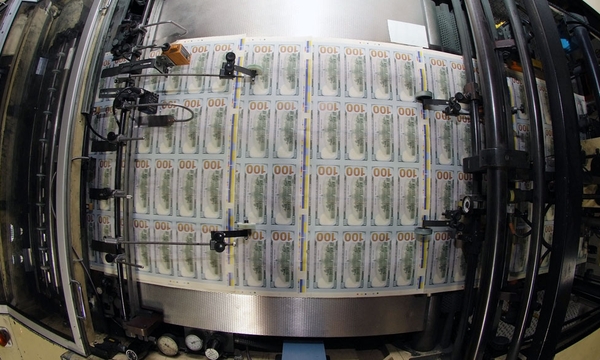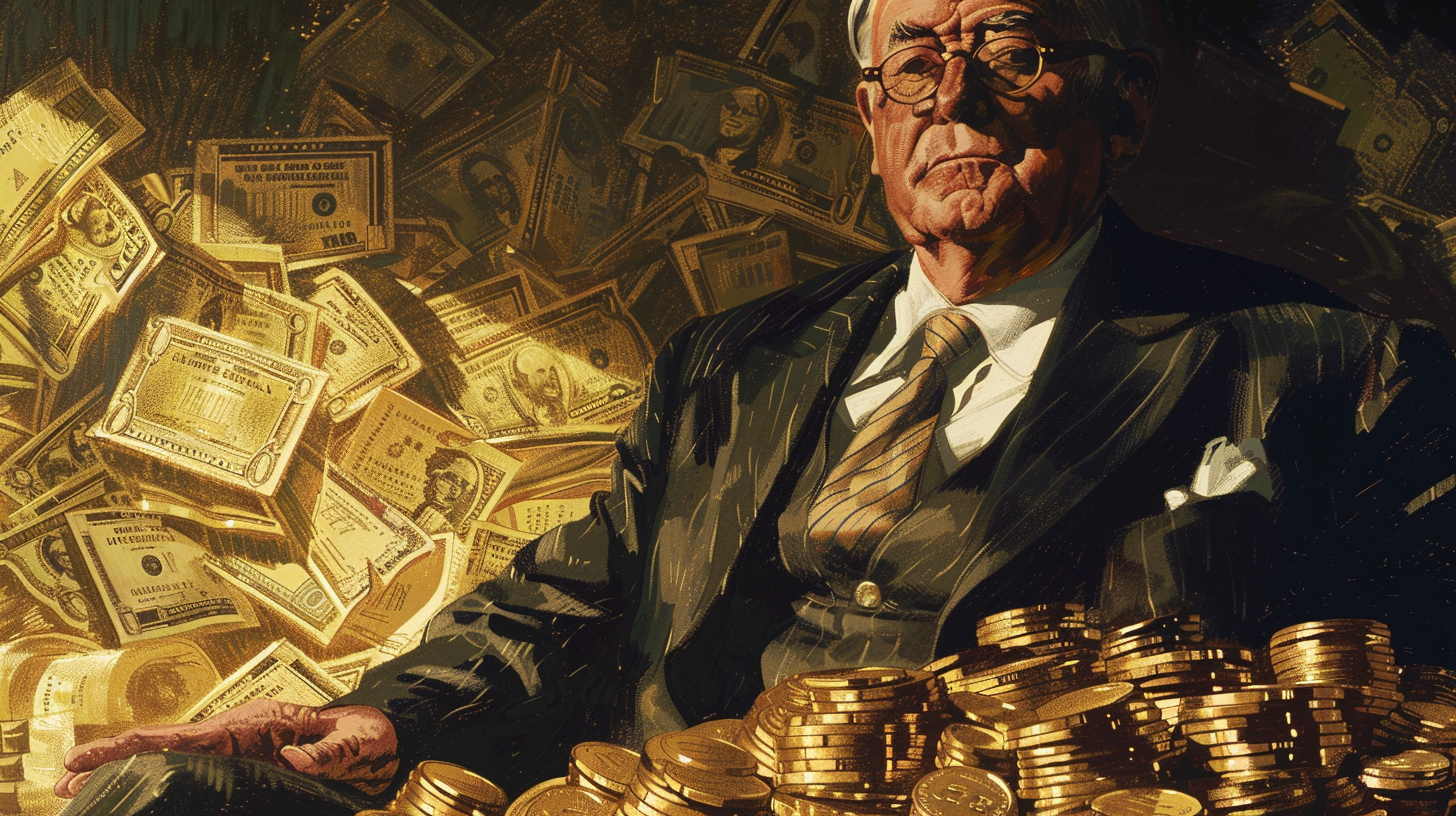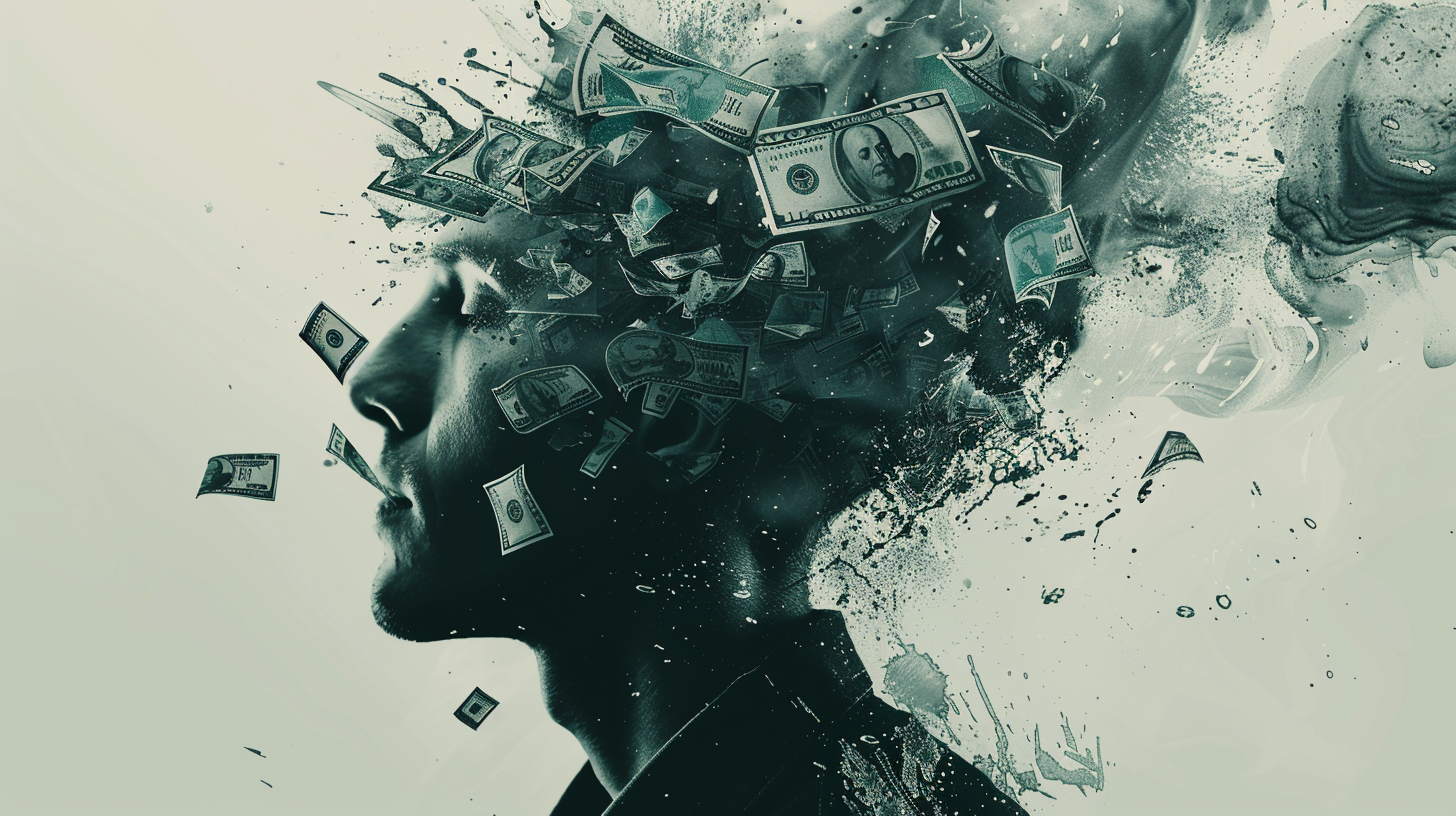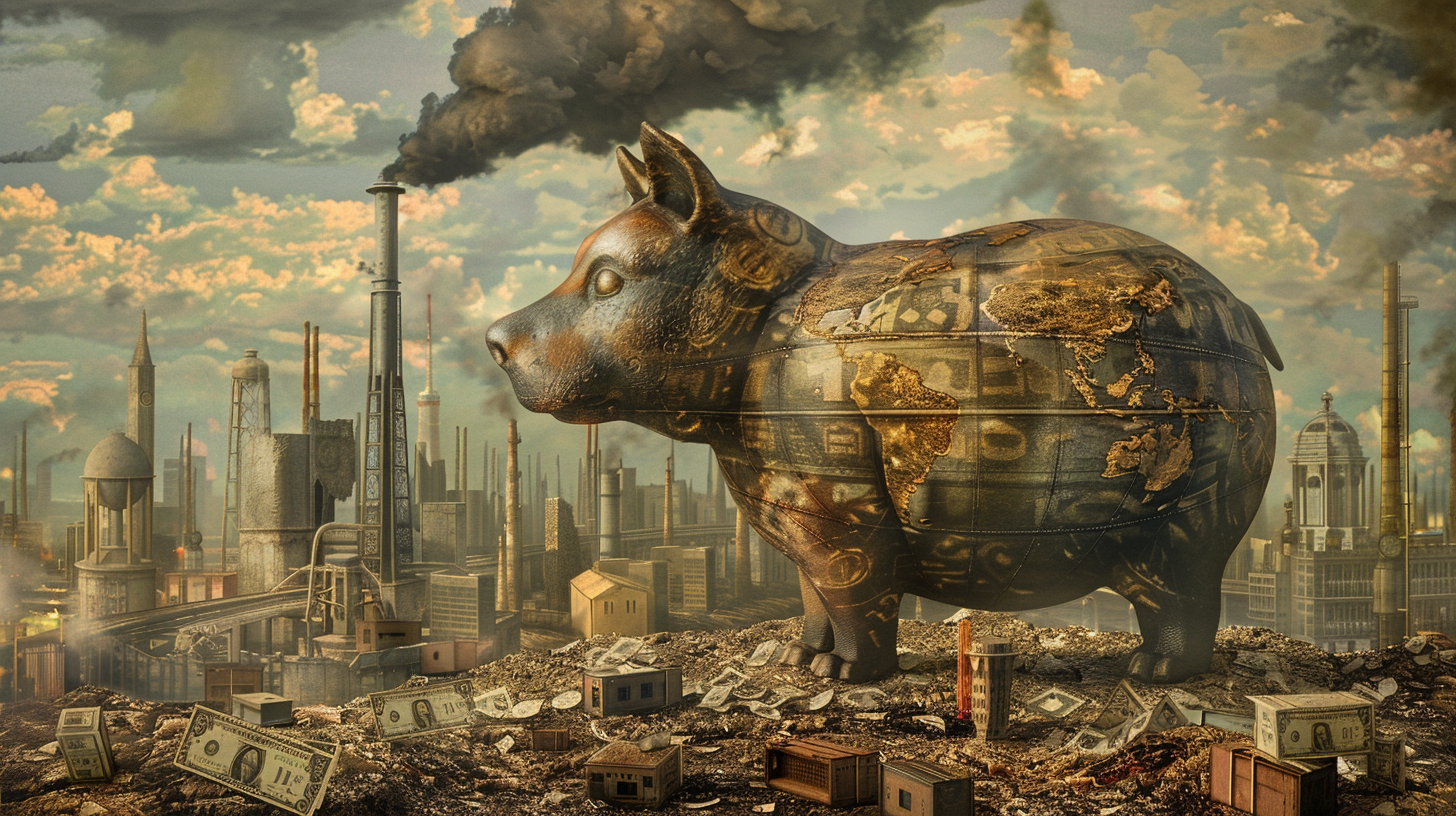Money Printing Does Not Do an Economy Good
The following article was written by Peter Schmidt. Any views expressed are his own and do not necessarily reflect the views of Peter Schiff or SchiffGold.
When Nixon closed the gold window in August 1971, the US found itself in exactly the same economic circumstances as Britain had in September 1931 when she reneged on her gold standard obligations. If Ben Bernanke’s theory on the Great Depression is correct – namely, that ‘countries that left gold earlier also recovered earlier’ – the United States should have received an enormous economic shot in the arm after finally freeing itself from its formerly golden fetters.
So what has all the resulting money creation and credit expansion from the Fed’s PhD economists with total freedom of action wrought since 1971? A cursory review of the automobile industry, which is not an unreasonable proxy for the entire US economy, reveals that the economy did not receive a shot in the arm by freeing central bankers from their “golden fetters”– unless of course the shot was loaded with some sort of highly-toxic economic poison.
In 1969, the United Auto Workers had just under 1.5-million members.[i] In March 2014, the UAW celebrated when its membership went back above 390,000.[ii] UAW membership – which now includes casino workers – has fallen 74% from its high. Many of the factories, which used to be the envy of the world and paid the world’s highest wages, have been reduced to rusting hulks inside crumbling, graffiti-riddled brick facades. Scores of formerly prosperous American cities in the industrial mid-west linked with the auto industry – where a single wage-earner armed with little more than a high-school degree could comfortably support a large family – are now little more than war-zones that even the combatants no longer care about.
What happened?
According to Bernanke’s theory on the Depression, an expansion of the money supply should have been all that was needed to ensure a recovery from the Depression. By the same token, the enormous increase in the money supply since 1971 should have virtually guaranteed the continued prosperity of the US auto industry. However, as the money supply has expanded the US auto industry is now a mere shadow of its former self. Ben Bernanke’s theory on the Great Depression would appear to have little more in the way of substance than that of the automobile industry the Fed’s policies of the last 45 years did so much to destroy.
It is not necessary to simply rely on the logical sophism and simplistic stupidity surrounding the primacy of monetary policy and only monetary policy at the core of Bernanke’s theory on the Great Depression to show how ludicrous the entire theory is. Perhaps it will be argued that while the US auto industry has suffered, it has also suffered in other “first world” countries. To be sure, in his Great Depression argument Ben Bernanke believes “compelling” evidence can be seen by comparing those countries that “benefitted” from abandoning gold and stable money with those countries that remained shackled to the “tyranny” of gold. Let’s use Bernanke’s own logic to further prove the enormous stupidity that permeates almost everything he believes about the Depression. In particular, can we compare the economic performance of the US auto industry with the performance in some other country to show that credit expansion is not the panacea Bernanke foolishly believes it is?
Of course, after 1971, nothing resembling a gold standard existed in the world. However, the example of the German economy generally, and the German auto industry, in particular, does provide a good proxy to further judge the validity of Ben Bernanke’s Great Depression theory. The German currency – first the mark and now the euro – is now over twice as valuable in dollar terms as it was in 1971. In essence, the example provided by the German economy of the last five decades and its relative credit stringency compared to the United States is quite similar to that of the 1930s vintage economies that remained on the gold standard during the Great Depression
Ben Bernanke cites a few years of economic performance in the 1930s to conclude that countries that freed themselves from the burden of gold and expanded the money supply did better than those countries that didn’t. This conclusion on the beneficial aspects of expanding credit is completely contradicted by comparing the German auto industry with its contemporary American counterpart. In spite of a much “harder” currency, in 2011 Germany – a country the size of Montana, with hardly any raw materials and a population about 25% that of the United States – produced nearly twice as many cars as the United States (just under 5.9-million vehicles were produced in Germany while the US produced just under 3-million).[iii] German workers also earned nearly two times the wages of their American counterparts to build these cars ($67.14 versus $33.77)![iv]
The fact that a massive expansion in the money supply in the United States has also coincided with a neutron bomb being dropped on the American auto industry completely exposes the fallacy in Ben Bernanke’s argument on the Great Depression. Bernanke takes a few years of completely unreliable data from the 1930s, ignores the devastating impact of the Fed’s cheap money policies on the American economy over the last forty-plus years, and concludes that cheap money – like milk – always does an economy good. In the analysis, all the long-term consequences of a cheap money policy are considered. On the basis of this long-term analysis, it is obvious that cheap money, far from being a great economic elixir, will ultimately wreak untold havoc on an economy. Can anyone besides the denizens of Ivy League economics departments or the overpaid mediocrities on Wall Street really conclude that the United States has benefitted from the Fed’s cheap money policies since 1971?
There is an unmistakable symbolism in this review of the American auto industry and its use in exposing as completely fraudulent and fallacious Ben Bernanke’s core belief on the Great Depression – the economic benefits always accruing from a policy of cheap money and expanding credit. It used to be said – quite correctly – that “what is good for General Motors is good for the United States.” As the comparison of the American and German automobile industries prove, GM, the American worker, the American automobile industry and the American economy were all greatly damaged by the cheap money policies of the Fed over the last forty-five years.
The handful of low-paid casino workers who have replaced hundreds of thousands of highly paid auto workers on the UAW membership rolls provide a perfect metaphor for everything the Fed has gotten wrong over the years, and what Bernanke gets wrong in his theory on the Great Depression. The casino workers masquerading as members of the United Auto Workers union are the walking and talking embodiment of how the Federal Reserve’s disastrous monetary policies since 1971 have reduced the most important post-war industry in the United States to rubble, while simultaneously financing the construction of the world’s largest casino on Wall Street.
![]()
Peter Schmidt served six years in the Air Force and has spent the rest of his professional life in the petrochemical, oil refining and power generation industries. Peter has BS and MS degrees in mechanical engineering from Lehigh University and is a licensed professional engineer in California and Louisiana. Peter is finishing up his book, “Elites in Name Only – the Financial Crisis,” a comprehensive look at the people behind the 2008 financial crisis. He also runs the website the92ers.com, which provides an overview of the 50 people most responsible for causing the 2008 crash.
NOTES
[i] UAW membership from bar chart provided by the Detroit Free Press www.freep.com/assets/freep/pdf/C4171982321.PDF [ii] David Phillips, “UAW Membership Rises for Fourth Straight Year as Industry Rebounds,” Automotive News, March 29, 2014, http://www.autonews.com/article/20140329/OEM01/140329839/uaw-membership-rises-for-4th-straight-year-as-industry-rebounds [iii] Worldometers – Real Time World Statistics, http://www.worldometers.info/cars/ [iv] Frederick Allen, “How Germany Builds Twice as Many Cars as the U.S. While Paying Its Workers Twice as Much,” Forbes.com, December 12, 2011, http://www.forbes.com/sites/frederickallen/2011/12/21/germany-builds-twice-as-many-cars-as-the-u-s-while-paying-its-auto-workers-twice-as-much/Get Peter Schiff’s most important Gold headlines once per week – click here – for a free subscription to his exclusive weekly email updates.
Interested in learning how to buy gold and buy silver?
Call 1-888-GOLD-160 and speak with a Precious Metals Specialist today!





 As fiscal imbalances persist, driven by coercive measures and artificial currency creation, the middle class faces erosion and purchasing power dwindles. But as the world hurtles towards a potential reckoning, the lingering question remains: can this precarious balance last, or are we teetering on the brink of a cataclysmic economic shift?
As fiscal imbalances persist, driven by coercive measures and artificial currency creation, the middle class faces erosion and purchasing power dwindles. But as the world hurtles towards a potential reckoning, the lingering question remains: can this precarious balance last, or are we teetering on the brink of a cataclysmic economic shift? Beneath the veneer of headline job gains, the American economy teeters on the brink: native employment dwindles as part-time and immigrant jobs surge. Government hiring camouflages looming recession warnings. Inflation and political blunders worsen the crisis, fueling public outrage at the establishment’s mishandling of the economy.
Beneath the veneer of headline job gains, the American economy teeters on the brink: native employment dwindles as part-time and immigrant jobs surge. Government hiring camouflages looming recession warnings. Inflation and political blunders worsen the crisis, fueling public outrage at the establishment’s mishandling of the economy. On April 5 1933, Franklin D. Roosevelt abandoned the gold standard, wielding questionable legal power amidst America’s dire economic depression. His whimsical approach to monetary policy, including coin flips and lucky numbers, unleashed unprecedented inflation and price increases that have since amounted to nearly 2500%. Our guest commentator explores this tragic history and the legacy […]
On April 5 1933, Franklin D. Roosevelt abandoned the gold standard, wielding questionable legal power amidst America’s dire economic depression. His whimsical approach to monetary policy, including coin flips and lucky numbers, unleashed unprecedented inflation and price increases that have since amounted to nearly 2500%. Our guest commentator explores this tragic history and the legacy […] Welcome to the world of modern economics where the term “inflation” no longer signifies the increase in the quantity of money, but has evolved into a plethora of buzzwords. From “shrinkflation” to “greedflation,” these new terms and semantic shifts are by no means harmless but a manipulation of popular sentiment. Von Mises said they play […]
Welcome to the world of modern economics where the term “inflation” no longer signifies the increase in the quantity of money, but has evolved into a plethora of buzzwords. From “shrinkflation” to “greedflation,” these new terms and semantic shifts are by no means harmless but a manipulation of popular sentiment. Von Mises said they play […] Assuming CPI measurements are not understatements, the dollar’s value has plummeted by a staggering one-fifth since 2020, yet, rather than acknowledging its role in fueling this economic turmoil, the Biden administration deflects, casting capitalism and corporate greed as the villains. The latest February CPI data show more signs of the upcoming inflation bloodbath.
Assuming CPI measurements are not understatements, the dollar’s value has plummeted by a staggering one-fifth since 2020, yet, rather than acknowledging its role in fueling this economic turmoil, the Biden administration deflects, casting capitalism and corporate greed as the villains. The latest February CPI data show more signs of the upcoming inflation bloodbath.